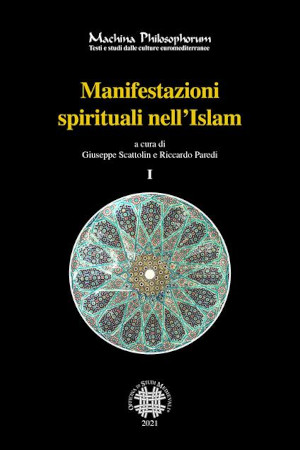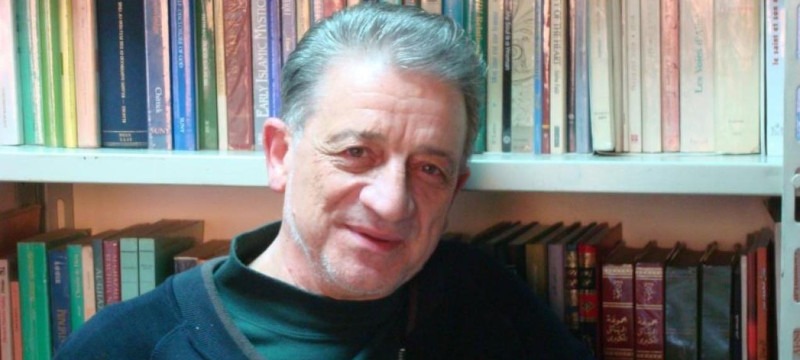Giuseppe Scattolin
The cinema room of the women’s section of the Bologna prison is crowded with women, where we organized the screening of one fiction Arab of 1963 (!) on the human and spiritual story of the queen of Islamic Sufism: Rābiʿa al-ʿAdawiyya, who lived twelve hundred years ago, just yesterday.
The dialogues are in the original language, without subtitles, but the effect of the projection on the ladies present is magnetic, also for the magical voice of Umm Kulthum, the Egyptian singer who until now accompanies the entry into sleep of millions of people, including Middle East and North Africa.
The Arabic-speaking inmates act as interpreters for the others, translating as they can and adding their own comments, which I find no less interesting than the original dialogues.
Among them there are those who have been convicted of theft, some for drug dealing, some for injury, some for murder. But between their very limited lives and that of the Basra mystic, consumed in fasts, vigils and renunciations of the pleasures of the world, including those of the thalamus, there is a profound link.
In this close encounter between women, apparently so different, I read the ability of the mystical experience to pass under the borders, navigating the invisible waters of the soul. The contemplative dimension does not exclude anyone, it is by its nature a common home, or rather an underground river.

Spiritual manifestations in Islam
This is the global message I get from reading Spiritual manifestations in Islama wide and accurate selection of sayings and anecdotes by eighteen masters of Islamic mysticism, between the 7th and 9th centuries, that is the golden age, with a wide historical and thematic introduction.
Father of the work is Giuseppe Scattolin, a Comboni religious who dedicated his long career as a scholar to Sufism.
The original text, in Arabic, was released in Egypt in 2008, and had enjoyed considerable circulation, crowned by three reprints. Now he also speaks in Italian, thanks to the co-curator Riccardo Paredi and the group of translators who collaborated in the production of the book published by Officina di Studi Medievali.
But is Sufism true Islam?
The answer that comes from the pages of the book is a firm yes. To the undeniable contribution of ideas and stimuli characterizing the mosaic of civilizations, in the geographical area where the religion of the crescent was born and developed, we must add the deep roots of the first generations of Muslim ascetics in the “Islamic background”.
Their book is the Koran, their model is what is said of Muhammad’s piety, their aspiration is to safeguard this piety from the worldly drift induced by military victories, from the opulence that invaded first Damascus then Baghdad, with everything the imaginable outline of corruption and enslavement of the sacred to personal interests.
In the behavior and teaching of the first generations of Sufis there is something that recalls the beginnings of monasticism, as a reaction movement to the worldliness of the Church, after the “conversion” to Christianity of the Roman Empire in the fourth century.
Return to purity
The appeal to the purity of piety does not exhaust the intra-Islamic battle of the Sufis: they, in fact, add that the “legal dimension”, engraved in the word sharīʿa, it is not enough to keep religion alive, on the contrary it risks suffocating it. They do not deny the sharīʿathey practice it, but at the same time they fear its risks.
Unlike Christianity – and in line with rabbinic Judaism – Islam has an extremely articulated regulatory apparatus, which potentially affects all areas of life, starting with worship, the subject of opening all the manuals of Muslim law. .
Obedience to the norm expresses the fundamental virtue of the believer, which is humble submission to God. In the absence of a continually nourished “inner fire”, this virtue, however, risks leading to a mechanical, soulless practice.
Here then is the help brought by the mystics: a way that goes from the exterior to the interior, towards the goal of haqīqaa term that expresses the longing for the supreme encounter with God, Truth ineffable that transcends all representation and expectation, since God is always greater than “institutional” religion.
Pentagram of the human
Then there is a bridge of values, which Sufism launches to other cultural and religious shores. Giuseppe Scattolin defines it as the “pentagram of the human”, seeing it formed by love, mercy, truth, justice and peace:
«The centrality of these qualities – he writes in the introduction to the volume – can easily be found in the most diverse religions. In the Bible, for example, we have many passages that exhort to practice the true religion, which is that of mercy and love against all religious exteriorism ”.
The pentagram of the highest Sufi virtues can thus become a common ground of good daily practices, in that “dialogue of life” considered a pillar and point of verification of the quality of interreligious dialogue at the theological level.
Critical spirit
Obviously not all that glitters is gold, because even Sufism has its dark sides: from the fascination that the jihad armed has exercised on many of its members (until today) the historical involvement in the slave trade in Africa, up to the risks of the particular interpersonal relationship between the Novice and his Elder which, according to a famous definition is comparable to the state of impotence of the corpse in the hands of those who wash it. These and other shadows are, moreover, part of every human, religious but also secular experience, which always requires great prudence and a critical spirit.
However, no criticism can erase the profound value of the Islamic mystical adventure and its intrinsic ability to make a bridge between worlds.
There is a clear demonstration of this in the word of thanks that Ahmad al-Tayyeb had wanted to insert at the end of the introduction of the Arabic edition (later taken up in the Italian one):
“This Anthology has collected and put together the rarest pearls of poems about divine love and its secrets, and a great number of Sufi expressions that are rarely found gathered in a single book. What most amazes the reader of this rich literary composition is that its composer is prof. Giuseppe Scattolin… We, people of the Arabic language, therefore owe him a great appreciation and cordial thanks, together with his disciple and companion Ahmad Hasan ».
The one who at the time of publication was the rector of al-Azhar University, and who later wrote the Abu Dhabi Document on Human Fraternity with Pope Francis, thanks in this way a non-Muslim scholar, Italian by citizenship, Christian by profession. of faith, religious by choice of life, by reason of the service rendered to readers of Arab culture, Muslims in the lead. A virtuous circulation – that of groundwater – which deserves to be fed with new tributaries.
Giuseppe Scattolin, Riccardo Paredi (edited), Spiritual manifestations in Islam. Anthology of some fundamental texts of classical Sufism (I / VII – VII / XIII centuries) translated and commented. Complete edition, Medieval Studies Workshop, Palermo 2021, 552 p.
Those mysterious waters that flow under the borders – WeekNews


